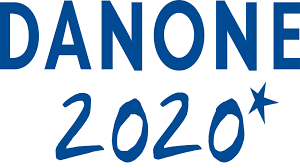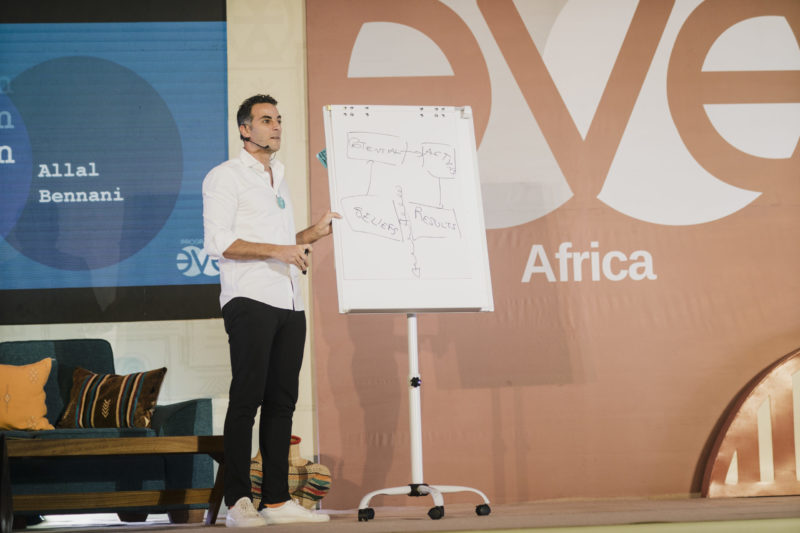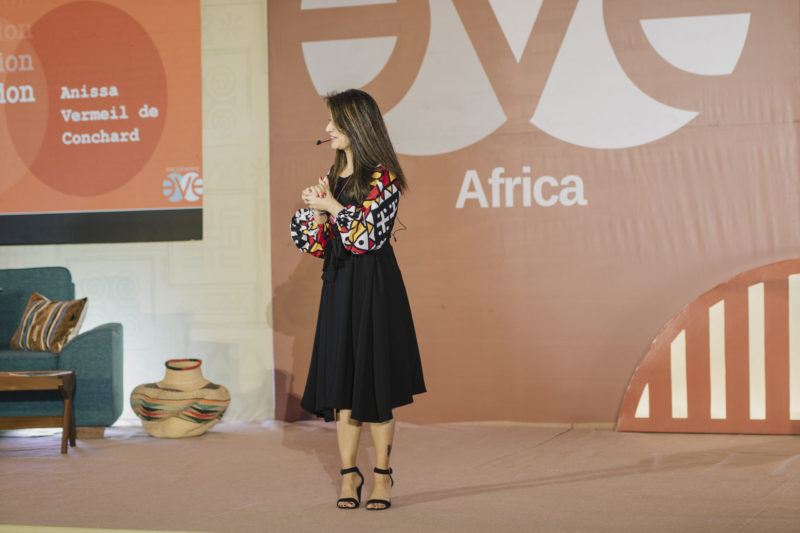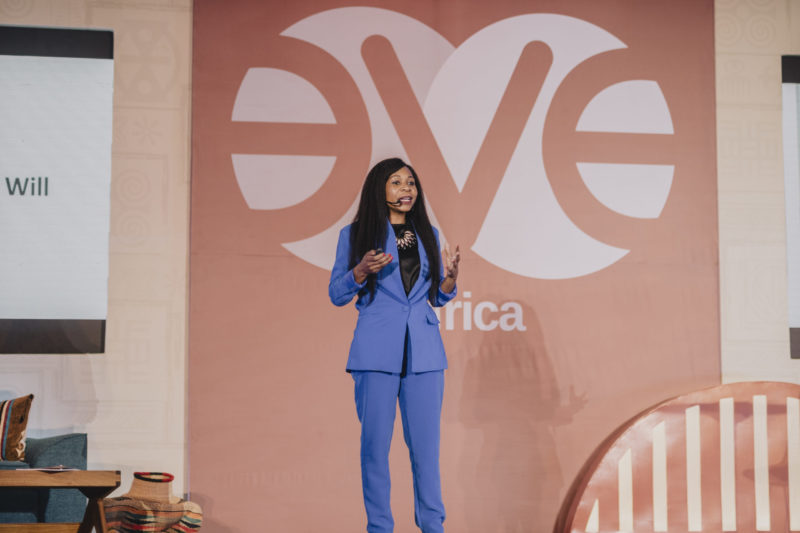An encounter with Marc Benoît, Danone Human Resources Director
 Marc Benoît has been HR Director at Danone since January 2014.
Marc Benoît has been HR Director at Danone since January 2014.
He comes from the “business” world, and sees the HR function from the point of view of someone who is passionate about how people can grow within their company.
At the helm of a department which is a cornerstone for the major challenges that Danone has set itself for the coming years, he intends to innovate wherever possible – including shaking up the way that we innovate!
Eve le blog: Hello Marc, please would you give us a review of your career path, as is our usual practice for the EVE blog?
Marc Benoît: I have held various positions in marketing then as director of business units before taking up the leadership of Danone’s General Human Resources department two years ago.
But I’m not such an unusual case: maybe you will have noticed that among the eight new CAC40 HR directors, seven come from the business world as I do. I see that as a sign of a new perception both in terms of HR – which is moving away from being a “support function” towards becoming a strategic lever for performance in itself – and business, which takes account of the human element with a better awareness of its complexity and how it evolves.
Eve le blog: What in your personal journey made you want to get into HR roles?
Marc Benoît: Right from the start of my career, I realised that what really interested me was management. That’s the way change happens, innovation becomes reality and great entrepreneurial adventures take shape. So my main interest has always been the human aspect in Danone
Next, I had a real revelation when I took on my first General Manager job and discovered coaching: both personal and team coaching. Taking the time to get to know yourself, and indeed really interacting with others, learning about who you are, what you want, getting into a deeper relationship with yourself and your environment; all that convinced me that “human resources” are not just empty words but real wealth, worth discovering, preserving, cultivating, fertilzing and helping to grow.
Eve le blog: How is this mindset embodied in concrete terms in the HR project that you are implementing for Danone?
 Marc Benoît: There are three priorities for Danone HR: organization (we need to innovate in order to get out of our old habits and encourage people to work together), talent (which we must learn to attract and develop, in what has become a very competitive high-potential market) and social value (which is the key to Danone’s double project, and is now more dynamic than ever).
Marc Benoît: There are three priorities for Danone HR: organization (we need to innovate in order to get out of our old habits and encourage people to work together), talent (which we must learn to attract and develop, in what has become a very competitive high-potential market) and social value (which is the key to Danone’s double project, and is now more dynamic than ever).
These three pillars are of direct benefit to the Danone 2020 transformation project.
Eve le blog: Can you tell us more about this Danone 2020 project?
Marc Benoît: Danone 2020 is embodied in the Manifesto, which reasserts the fundamental values of the company’s social and economic project, particularly on the question of health and three major focuses: food, cycles, and women and men in the organization.
Eve le blog: Let’s look at those one by one. Food first: what are the big issues now and for the future in that field?
Marc Benoît: Alimentation is the main health issue today, everywhere in the world, with different challenges arising in different regions and among different cultures.
We’re coming away from the idea of strictly functional alimentation. It has been observed that models of standardized world production practices have failed, with damage done to health, the environment and society. In order to move on to something new, common sense isn’t everything – innovation also has an important role. But this innovation must be decentralized, in line with local populations’ needs, resources and cultural habits.
Eve le blog: The second focus you identified is “cycles”. What do you mean by that?
Marc Benoît: There too, we’re going to have to make a break in order to move from a “supply chain” view to an overall perspective on the cycles of water, milk, packaging, etc.
Recycling is part of that, of course, but a “cycle” view of things goes beyond adopting good practices: there is a whole ecosystemic approach to business that needs to be taken on board.
Eve le blog: Lastly, you talked about a focus on “women and men and the organization”.
Marc Benoît: In line with the new visions I have mentioned, we must think up new, more collaborative, more flexible, more free-flowing ways of working.
For example, like many multinationals, we used to have subsidiaries that never talked to each other. In order to remedy that obstacle to mutual knowledge and dialogue, we have set up a shared platform, One Danone, which gives the GM’s of our various subsidiaries a place where they can have discussions.
In the medium term, the aim is to open up the system to all our colleagues, so as to create a movement of convergence everywhere and also encourage the creation and sharing of new ideas.
Eve le blog: One last thing: we would like to come back to the subject of talent. Why has this become such a key issue and also sometimes such a headache for every organization?
 Marc Benoît: To answer that question, it is immediately tempting to mention Generation Y’s aspirations, which challenge companies to find new arguments in order to attract very demanding highpotentials. But we will not make promises we cannot keep, and we must stay true to ourselves. The values and culture of a company are not necessarily outmoded because it seems that the younger generation doesn’t subscribe to them any longer, or at all; maybe it’s how they are represented and how they apply to real life situations that needs to be renewed. At Danone, we firmly believe that the company’s most profound values resonate strongly with the expectations of the new generation. Maybe you have seen our latest worldwide “ employer branding” campaign, which re-anchors the company’s core culture with new communications codes.
Marc Benoît: To answer that question, it is immediately tempting to mention Generation Y’s aspirations, which challenge companies to find new arguments in order to attract very demanding highpotentials. But we will not make promises we cannot keep, and we must stay true to ourselves. The values and culture of a company are not necessarily outmoded because it seems that the younger generation doesn’t subscribe to them any longer, or at all; maybe it’s how they are represented and how they apply to real life situations that needs to be renewed. At Danone, we firmly believe that the company’s most profound values resonate strongly with the expectations of the new generation. Maybe you have seen our latest worldwide “ employer branding” campaign, which re-anchors the company’s core culture with new communications codes.
 What’s more, the subject of “talent” isn’t only about recruitment, it’s also a need to help talent of all ages and backgrounds to grow and give everyone a possibility to develop their leadership potential. That takes two ingredients: enlightened individuals (who are aware of their uniqueness, environments, roles and responsibilities) and a context that encourages people to take responsibility and express their potential. We are currently running “talent review for all” experiments in several countries, with very encouraging results: in Mexico, for example, 57% of our managers originally joined the company as “first liners”, on or close to the bottom rung of the ladder. We must draw inspiration from that kind of movement in our Western subsidiaries and particularly in France. We all know about the importance of qualifications and how sturdy glass ceilings can be for those who don’t hold all the cards… What needs changing are the rules, not the players!
What’s more, the subject of “talent” isn’t only about recruitment, it’s also a need to help talent of all ages and backgrounds to grow and give everyone a possibility to develop their leadership potential. That takes two ingredients: enlightened individuals (who are aware of their uniqueness, environments, roles and responsibilities) and a context that encourages people to take responsibility and express their potential. We are currently running “talent review for all” experiments in several countries, with very encouraging results: in Mexico, for example, 57% of our managers originally joined the company as “first liners”, on or close to the bottom rung of the ladder. We must draw inspiration from that kind of movement in our Western subsidiaries and particularly in France. We all know about the importance of qualifications and how sturdy glass ceilings can be for those who don’t hold all the cards… What needs changing are the rules, not the players!
Interviewed by Valérie Amalou and Marie Donzel for the EVE blog.





